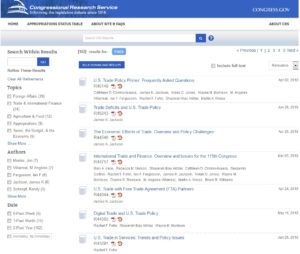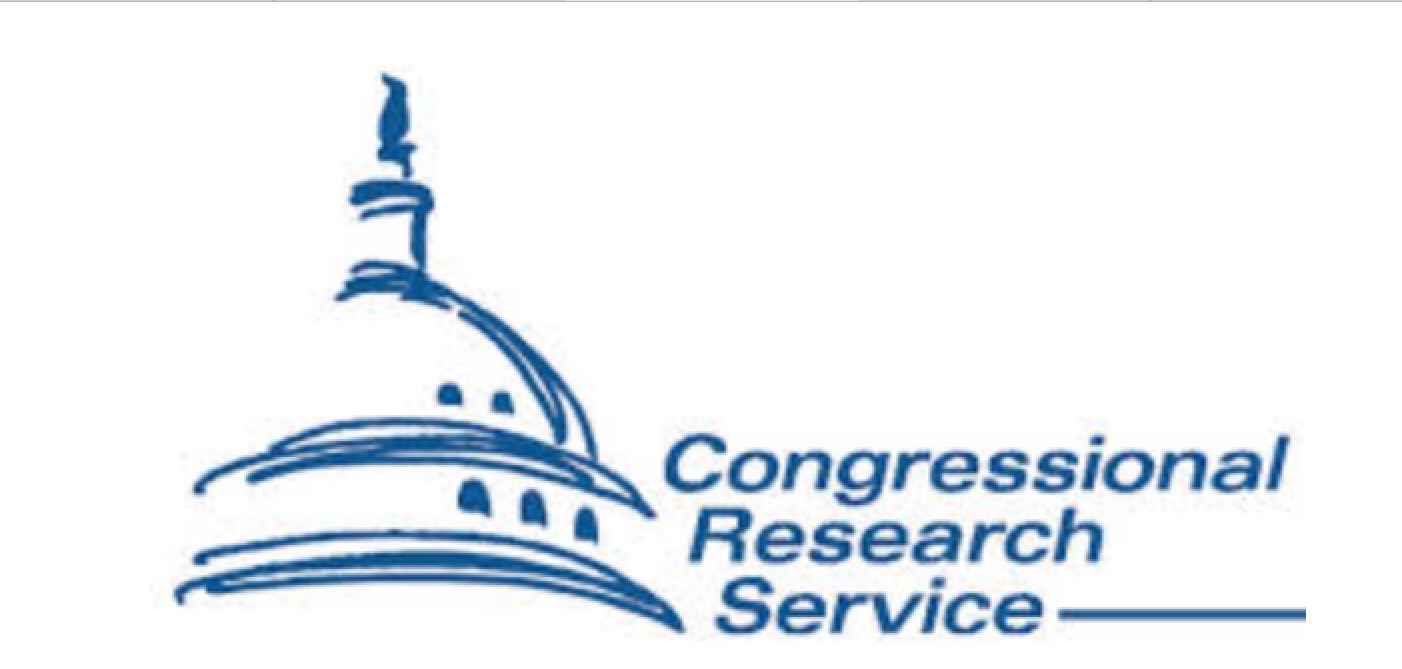The Congressional Research Service (CRS) is a non-partisan agency within the Library of Congress that provides confidential and authoritative analysis on policy issues for Members of Congress and their staff. The CRS has a staff of about 600 employees including policy analysts, economists, scientists, lawyers, and librarians. Following the passage of the Consolidated Appropriations Act of 2018, CRS reports have been made publicly available. Currently, the official public website provides access to the in-depth “R-series” reports though the full inventory is not slated for full migration to the website until spring 2019, and there is no specified timeline for access to the agency’s shorter written products (Insight, In Focus, Legal Sidebar, etc.). Some publications in the R-series, as well as in the other CRS product series, can also be found on non-official sites including Every CRS Report, and the Federation of American Scientists (FAS) CRS Portal.

As the government shutdown continues to drag on, CRS reports can provide valuable analysis and insight. Some relevant reports include:
Economic Effects of the FY2019 Government Shutdown (January 2019) This CRS Insight, written by an Macroeconomic Policy Specialist, provides a brief analysis of the potential economic effects of the current FY2019 shutdown.
How a Government Shutdown Affects Government Contracts (January 2019) Written by a legislative attorney, this CRS Legal Sidebar examines “possible effects that a government shutdown could have on new and existing federal contracts.”
Past Government Shutdowns: Key Resources (updated January 2019). The report provides an “annotated list of historical documents and other resources related to several past government shutdowns. Sources for these documents and resources include the Congressional Research Service (CRS), Government Accountability Office (GAO), House and Senate Committees, Office of Management and Budget (OMB), Office of Personnel Management (OPM), and Executive Office of the President.”
Shutdown of the Federal Government: Causes, Processes, and Effect (updated December 2018) This in-depth report covers “causes of shutdowns, including the legal framework under which they may occur; processes related to how agencies may plan for the contingency of a shutdown; effects of shutdowns, focusing especially on federal personnel and government operations; and issues related to shutdowns that may be of interest to Congress.” In case you were wondering, because of their responsibilities under the Constitution and a permanent appropriation covering congressional pay, “Members of Congress are not subject to furlough.”
Federal Funding Gaps: A Brief Overview (updated March 2018) Provides an overview and analysis of federal funding gaps, which is not synonymous with a government shutdown. “The interval during the fiscal year when appropriations for a particular project or activity are not enacted into law, either in the form of a regular appropriations act or a continuing resolution (CR), is referred to as a funding gap. Although funding gaps may occur at the start of the fiscal year, they may also occur any time a CR expires and another CR (or the regular appropriations bill) is not enacted immediately thereafter. Multiple funding gaps may occur within a fiscal year.”


